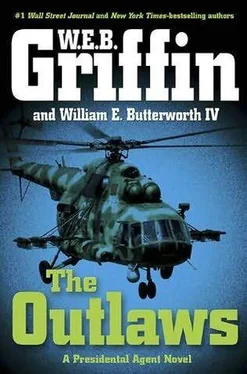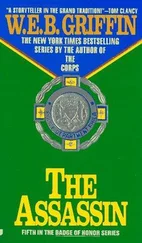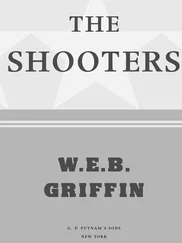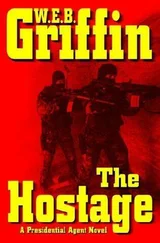W Griffin - The outlaws
Здесь есть возможность читать онлайн «W Griffin - The outlaws» весь текст электронной книги совершенно бесплатно (целиком полную версию без сокращений). В некоторых случаях можно слушать аудио, скачать через торрент в формате fb2 и присутствует краткое содержание. Жанр: Триллер, на английском языке. Описание произведения, (предисловие) а так же отзывы посетителей доступны на портале библиотеки ЛибКат.
- Название:The outlaws
- Автор:
- Жанр:
- Год:неизвестен
- ISBN:нет данных
- Рейтинг книги:3 / 5. Голосов: 1
-
Избранное:Добавить в избранное
- Отзывы:
-
Ваша оценка:
- 60
- 1
- 2
- 3
- 4
- 5
The outlaws: краткое содержание, описание и аннотация
Предлагаем к чтению аннотацию, описание, краткое содержание или предисловие (зависит от того, что написал сам автор книги «The outlaws»). Если вы не нашли необходимую информацию о книге — напишите в комментариях, мы постараемся отыскать её.
The outlaws — читать онлайн бесплатно полную книгу (весь текст) целиком
Ниже представлен текст книги, разбитый по страницам. Система сохранения места последней прочитанной страницы, позволяет с удобством читать онлайн бесплатно книгу «The outlaws», без необходимости каждый раз заново искать на чём Вы остановились. Поставьте закладку, и сможете в любой момент перейти на страницу, на которой закончили чтение.
Интервал:
Закладка:
Once the biological hazard package was laid on the table, it was examined by two score or more specially trained technicians. It was X-rayed, sniffed for leakage and the presence of chemicals which might explode, and tested for several other things, some of them classified.
Only after it had passed this inspection was the FedEx receipt signed. The package was then turned over to two armed security officers. Most of these at Fort Detrick were retired Army sergeants. One of them got behind the wheel of a battery-powered golf cart, and the other, after putting the container on the floor of the golf cart, got in and-there being no other place to put them-put his feet on the container.
At this point the driver checked the documentation to the final destination.
"Oh, shit," he said. "It's for Hamilton personally."
J. Porter Hamilton was the senior scientific officer of the U.S. Army Medical Research Institute. It was said that he spoke only to God and the commanding general of the U.S. Army Medical Research Institute, but only rarely deigned to do so to the latter.
Although he was triply entitled to be addressed as "Doctor"-he was a medical doctor, and also held a Ph.D. in biochemistry from Oxford and a Ph.D. in molecular physics from MIT-he preferred to be addressed as "Colonel." He had graduated from the United States Military Academy at West Point with the class of 1984 and thought of himself primarily as a soldier.
Colonel Hamilton had the reputation among the security force of being one really hard-nosed sonofabitch. This reputation was not pejorative, just a statement of the facts. Colonel Hamilton-a very slim, very tall, ascetic-looking officer whose skin was deep flat black in color-showed the security guards where he wanted the biological hazard container placed on a table in his private laboratory.
After they'd left, he eyed the container curiously. It had been sent from the Daryl Laboratory in Miami, Florida. Just who they were didn't come to mind. They had paid a small fortune for overnight shipment, which also was unusual.
He went to a closet, took off his uniform tunic, and replaced it with a white laboratory coat. He then pulled on a pair of very expensive gloves which looked like normal latex gloves, but were not.
"Sergeant Dennis!" he called. Dennis was a U.S. Army master sergeant, a burly red-faced Irishman from Baltimore who functioned as sort of a secretary to Colonel Hamilton. Hamilton had recruited him from the Walter Reed Army Medical Center.
Hamilton, doing what he thought of as his soldier's duty, often served on medical boards at Walter Reed dealing with wounded soldiers who wanted-or who did not want-medical retirement. Dennis had been one of the latter. He did not wish to be retired although he had lost his left leg below the knee and his right arm at the shoulder.
There was no way, Hamilton had decided, that Dennis could return to the infantry. On the other hand, there was no reason he could not make himself useful around Building 103 at Fort Detrick, if that was the option to being retired. He made the offer and when Dennis accepted, he'd asked, "Can you arrange that, Colonel?"
"I can arrange it, Sergeant Dennis. The chief of staff has directed the Army to provide whatever I think I need for my laboratory. Just think of yourself as a human Erlenmeyer flask." Dennis appeared. "Sir?"
"What do we know of the Daryl Laboratory in Miami, Florida?"
"Never heard of it, sir."
"Good. I was afraid that I was suffering another senior moment. Right after we see what this is, find out who they are and why they sent me whatever this is."
"You want me to open it, Colonel?"
"I want you to cut the tape, thank you. I'll open it."
Dennis took a tactical folding knife from his pocket, fluidly flipped open the stainless-steel serrated blade, and expertly cut the plastic tape from the container.
Hamilton raised the lid.
Inside he found a second container. There was a large manila envelope taped to it, and addressed simply "Colonel Hamilton."
Hamilton picked up the envelope and took from it two eight-by-ten-inch color photographs of six barrel-like objects. They were of a heavy plastic, dark blue in color, and also looked somewhat like beer kegs. On the kegs was a copy of The Miami Herald. The date could not be read in the first shot, but in the second photograph, a close-up, it was clearly visible: February 3, 2007.
"My God!" Colonel Hamilton said softly.
"Jesus Christ, Colonel," Sergeant Dennis said, pointing. "Did you see that?"
Hamilton looked.
The envelope had covered a simple sign, and now it was visible: DANGER!!! BIOHAZARD LEVEL 4!!!
Of the four levels of biological hazards, one through four, the latter posed the greatest threat to human life from viruses and bacteria and had no vaccines or other treatments available.
Hamilton closed the lid on the container.
"Go to the closet and get two Level A hazmat suits."
"What the hell's going on?" Dennis asked.
"After we're in our suits," Hamilton said calmly.
Two minutes later, they had helped each other into the Level A hazmat suits. These offered the highest degree of protection against both direct and airborne chemical contact by providing the wearer with total encapsulation, including a self-contained breathing apparatus.
The suits donned by Colonel Hamilton and Master Sergeant Dennis also contained communications equipment that connected them "hands off" with each other, as well as to the post telephone system and to Hamilton's cellular telephone.
"Call the duty officer and tell him that I am declaring a potential Level Four Disaster," Hamilton said. "Have them prepare Level Four BioLab Two for immediate use. Have them send a Level Four truck here to move this container, personnel to wear Level A hazmat gear."
A Level Four BioLab-there were three at Fort Detrick-was, in a manner of speaking, a larger version of the Level A hazmat protective suit. It was completely self-contained, protected by multiple airlocks. It had a system of highpressure showers to decontaminate personnel entering or leaving, a vacuum room, and an ultraviolet-light room. All air and water entering or leaving was decontaminated.
And of course "within the bubble" there was a laboratory designed to do everything and anything anyone could think of to any kind of a biologically hazardous material.
Colonel Hamilton then pressed a key that caused his cellular telephone to speed-dial a number.
The number was answered on the second ring, and Hamilton formally announced, "This is Colonel J. Porter Hamilton."
"Encryption Level One active," a metallic voice said three seconds later.
Hamilton then went on: "There was delivered to my laboratory about five minutes ago a container containing material described as BioHazard Level Four. There was also a photograph of some six plastic containers identical to those I brought out of the Congo. On them was lying a photo of yesterday's Miami newspaper. All of which leads me to strongly suspect that the attack on the laboratory-slash-factory did not-repeat not-destroy everything.
"I am having this container moved to a laboratory where I will be able to compare whatever is in the container with what I brought out of the Congo. This process will take me at least several hours.
"In the meantime, I suggest we proceed on the assumption that there are six containers of the most dangerous Congo material in the hands of only God knows whom.
"When I have completed my tests, I will inform the director of the CIA of my findings."
He broke the connection and then walked to the door and unlocked it for the hazmat transport people. He could hear the siren of the Level Four van coming toward Building 103. [ONE] Laboratory Four The AFC Corporation-McCarran Facility Las Vegas, Nevada 0835 4 February 2007 Laboratory Four was not visible to anyone looking across McCarran International Airport toward what had become the center of AFC's worldwide production and research-and-development activity.
Читать дальшеИнтервал:
Закладка:
Похожие книги на «The outlaws»
Представляем Вашему вниманию похожие книги на «The outlaws» списком для выбора. Мы отобрали схожую по названию и смыслу литературу в надежде предоставить читателям больше вариантов отыскать новые, интересные, ещё непрочитанные произведения.
Обсуждение, отзывы о книге «The outlaws» и просто собственные мнения читателей. Оставьте ваши комментарии, напишите, что Вы думаете о произведении, его смысле или главных героях. Укажите что конкретно понравилось, а что нет, и почему Вы так считаете.











